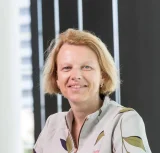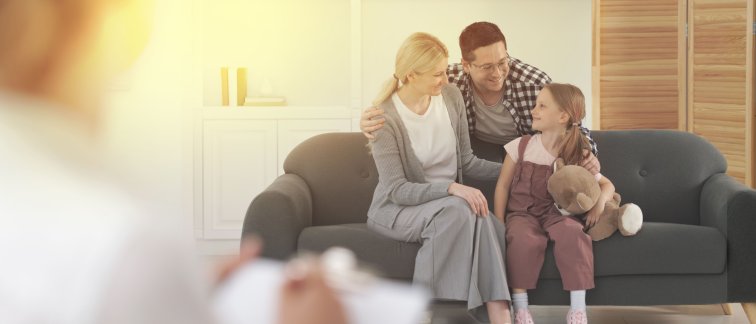Psychiatric symptoms, both in children and in parents, can have an impact on an entire family. Children of parents with mental disorders are more likely to develop mental disorders compared to children of mentally healthy parents. And vice versa, parents of children in treatment for mental health problems are at higher risk to experience problems themselves. Still, adult and youth mental health care institutions mostly provide individual focused care. To promote, implement and improve family focused mental health care, the academic collaborative center GEZIeN was founded, which is a collaboration between Levvel, Arkin and Amsterdam UMC. Their goal is to provide optimal mental health care for families. APH researcher, prof. dr. Christel Middeldorp, is the head of this academic collaborative center.
Academic collaborative center GEZIeN
Arkin, Levvel, and Amsterdam UMC established the academic collaborative GEZIeN. They collaborate within the Amsterdam region on a family-centered approach in youth and adult mental health care. This partnership has a broad scope, focusing on both the practical implementation of evidence-based interventions and the sharing of expertise (through education and training), as well as the development of new knowledge (through research and innovation).
Middeldorp: “I investigate how we can optimize mental health treatment for families. The aim is to prevent mental disorders in other families where possible. If multiple family members already have mental health symptoms, we aim to reach the best possible outcome for children and parents. Our previous research in child and youth mental health services has shown that outcomes are less favorable when at least one parent also reports mental health issues than for children whose parents do not report mental health issues. Providing integrated care to these families, which involves addressing both the parental as well as the child’s symptoms may be a way to close this gap in outcomes.”

Child and adult psychiatry
Until now, adult and youth care services mostly work in silos and do not provide family oriented care. Several factors hinder an effective collaboration: there are differences in funding systems and some professionals are specialized in either child or adult mental health care. This academic collaborative aims to address these issues.
Middeldorp: “One of the questions is how we can better assess the risk for all members in the family and provide treatment based on this risk. To answer this question, we need to be able to identify those who are vulnerable to developing mental health symptoms. Papers of over 10 years ago already mention the need for family oriented care. However, there has always been a division between child psychiatry and adult psychiatry, so it has not been implemented on a large scale."
Impact
They implement a sustainable family-centered approach in which family members of clients (parents and/or children) are screened and, if necessary, treated. They hope that this approach will become the new normal for clients with a family. By introducing this new approach, GEZIeN aims to make a direct impact on clients and their families within the broader context.
Middeldorp: “This project is close to clinical practice and impact was important from the start. This study is performed as part of clinical care so that the results are directly translatable to the clinic. The clinics themselves are also important stakeholders.”
The academic collaborative centre is also funded by the mental health services (Arkin and Levvel) and through several ZonMW grants. The goal of the ZonMW grants is to support initiatives that strengthen the connection between youth care and adult mental health services.
Tips for making impact
Middeldorp: "Something I would have done differently for a project in Brisbane, Australia, is that I would have taken more time to expand the family oriented approach to the other locations after having carried out a pilot. The extension to the other location was too much top down, which led to a significant delay."
Do’s
- Think about implementation when you design your research project
- Collaborate with clinicians and lived experience
- Carefully pick your collaborators
Don'ts
- Don’t think that implementing it in one clinic means the next clinic will be easier
- Don’t think that because the evidence is there, people will do it

